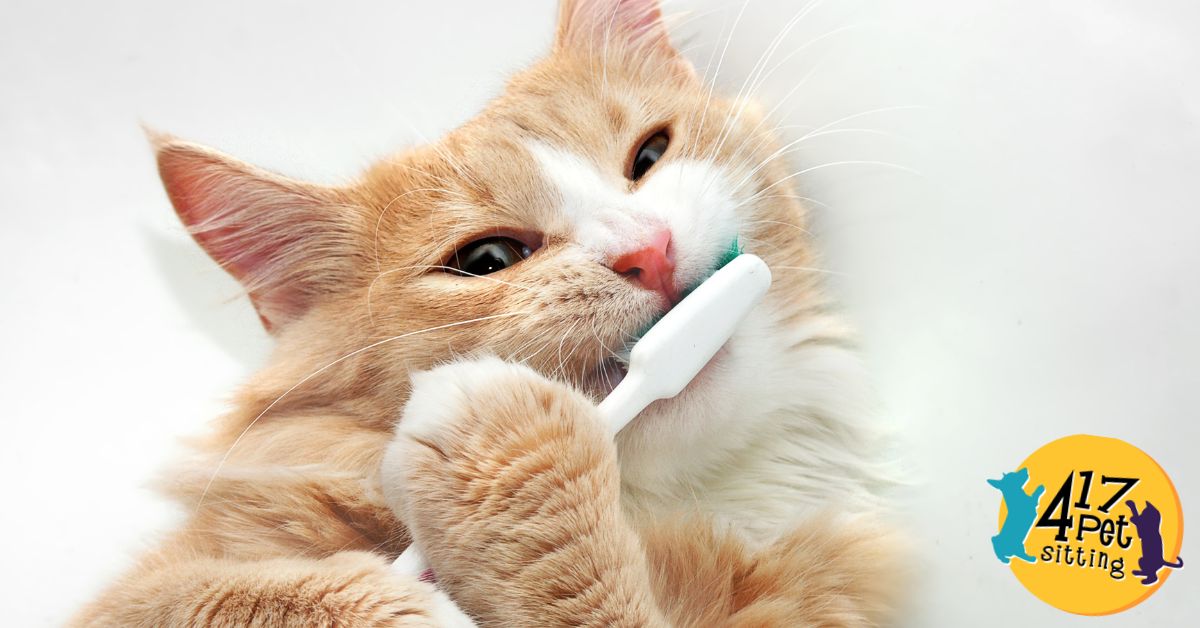Have you ever leaned in for a cuddle with your furry best friend, only to be met with a breath so bad it could knock out a small army? We might joke about “toxic” doggy breath or “fishy” feline kisses, but bad breath in pets is no laughing matter. It’s often a sign of underlying dental disease, which can lead to serious health problems if left untreated. That’s why Pet Dental Health Month (February) is the perfect time to sink our teeth into this important topic—because keeping your pet’s mouth fresh isn’t just about better snuggles – it’s about their overall well-being!
- Periodontal disease. Periodontal disease is the most common reason for bad pet breath. The bacteria that cause periodontal disease are in the plaque and tartar on the surface of your pet’s teeth. That bacteria can slowly spread to your pet’s gums, ligaments, and bones surrounding the teeth. Over time, this infection can cause bone loss and loose teeth.
- Abscessed tooth. When bacteria reach the root of a tooth, they set up a pocket of infection surrounding it, leading to swelling in the jaw or under an eye. Tooth root abscesses are often caused by periodontal disease or chipped/fractured teeth that expose the pulp, allowing bacteria to enter the tooth. Broken and abscessed teeth are common problems for dogs who chew hard items like bones.
- Foreign body. Our pets love to eat sticks and other strange things. Sometimes, these get stuck between their teeth. Since pets can’t simply use a toothpick or floss, these foreign bodies will stay stuck for quite some time, causing inflammation, infection, and even tissue ulcers. Imagine their relief when these are finally found and removed during a dental cleaning!
- Oral mass. Unfortunately, masses and cancers can happen anywhere in the body, even in the mouth. This is tough to spot because owners often can’t see that there’s a problem until the mass is large and cumbersome. In many cases, bad breath will be the first sign that something is wrong.
- Systemic disease. Not everything that makes pets’ breath stinky happens in the mouth. Several systemic diseases can affect your pet’s breath, making it smell off. The classic examples are kidney disease and diabetes.
So, don’t just chalk up the bad breath to something your pet ate! Talk to your veterinarian to make sure your pet’s mouth is healthy.

